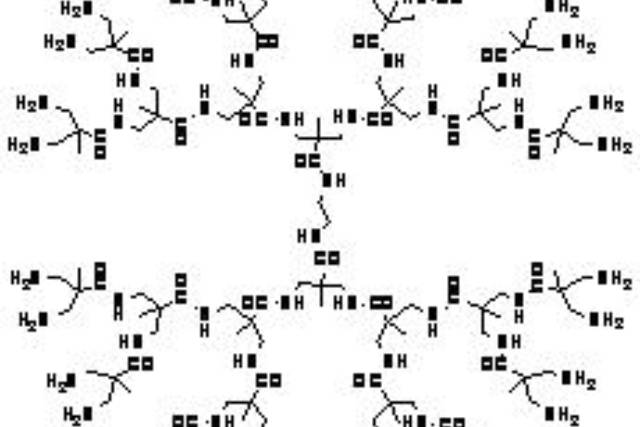NEW DENDRÍTIC STRUCTURES BAPAD
Description
Molecules with dendritic structures have gained importance since their appearance in 1980. These molecules are used in many fields and in different applications, but the current demand for materials with more sophisticated properties means that more easily functionalizable dendritic structures and improved methods for the manufacture of said structures. Thus, the present invention refers to the process for obtaining dendritic structures in which a core molecule is dissolved in an appropriate solvent, subsequently proceeding to the addition of a 2,2'-Bis (nitro or alkyl azido) propanoic acid halide . When the condensation reaction has taken place, the excess acid halide is removed, obtaining a finished reaction product that is subsequently reduced and isolated from the solvent, obtaining a dendritic structure of the desired generation.
Advantages
Among the advantages of the present invention are: • Their chemical structure is new. • They have great structural versatility: the dendritic structures that are obtained can be totally or partially modified with a great variety of functional groups. • They have a high resistance to common degradation processes.
Uses and Applications
The present technology allows the obtaining of new dendritic structures whose application is diverse, such as in the development of biological technologies, including their use as, for example, magnetic resonance agents, as drug transport molecules, but also within the field of new material technologies.
Keywords
Sectors
Areas
Patent Number
2392615B1
Applicants
Universidad De Málaga
Inventors
Ezequiel Perez De Inestrosa Villatoro, Antonio Jesús Ruíz Sánchez, Francisco Najera Albendin, Yolanda Vida Pol, Daniel Collado Martin, Pablo Mesa Antúnez
Filing Date
14/05/2011
Protection Level: National (Spain)
Processing Status: Spanish patent








